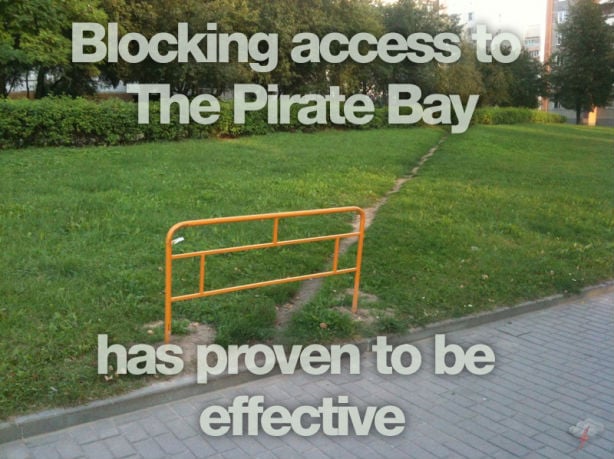 On Thursday following a two-week trial, a Virginia federal jury ruled that US-based ISP Cox Communications could be held liable for piracy carried out by its users.
On Thursday following a two-week trial, a Virginia federal jury ruled that US-based ISP Cox Communications could be held liable for piracy carried out by its users.
After failing to act on copyright infringement warnings sent by anti-piracy outfit Rightscorp on behalf of music publisher BMG, Cox was found guilty of willful contributory copyright infringement and ordered to pay $25 million in damages.
At the time of writing Cox is considering its options, including the possibility of appeal, but should the ruling stand the piracy landscape in the United States could be changed forever.
Internet service providers
Firstly, rival Internet service providers such as Comcast are likely to be somewhat nervous about how this decision will affect them and how they will be expected to handle copyright complaints in the future.
During the BMG case the judge found that Cox’s repeat infringer policy was lacking, so much so that it that meant the company lost its safe harbor protections under the DMCA.
It is now likely that if they haven’t already done so, major ISPs will be scrambling to have very clear repeat infringer processes committed to paper and have their employees follow them to the letter. After the decision this week, any one of them could be beaten with the same stick used to beat Cox.
The big question, however, is exactly how repeat infringers will be handled and what their ultimate punishment will be. In the Cox case the clear suggestion was that there needed to be not only suspensions, but also disconnections. That is not something that currently happens regularly in the United States.
Six Strikes
While Cox was one of the few large ISPs that refused to join, most major ISPs in the United States are already part of the so-called ‘Six Strikes’ (Copyright Alerts) scheme. Officially known as the Copyright Alerts System, the program sees pirating subscribers receive escalating warnings about their copyright infringing behaviors.
Along the way they may also face mitigation measures, such as a temporary break in service while having to fill in a copyright-related questionnaire. But then, after the sixth ‘strike’, it appears nothing much happens.
While terminations may be threatened by ISPs, there is no evidence to suggest they are being carried out on anything like a large scale. Certainly, the ‘Six Strikes’ deal itself does not mandate disconnections for repeat infringers, it merely makes the suggestion that could be an option for ISPs.

Nevertheless, if the Cox decision stands, ISPs across the United States will be more aware of the implications of handling infringers in the way that Cox has. At the very least they will be seeking to maintain their Safe Harbor protections under the DMCA so dealing with subscribers more firmly (or at least more clearly) seems the likely outcome.
Rightscorp
As it stands thus far, Thursday was a good day for Rightscorp. The company hasn’t been doing well for some time but its argument that ISPs must implement disconnections for repeat infringers now has more momentum than it did before. That positivity for the company also reflected in its stock Thursday, albeit it briefly.

But while on the surface the disconnection threat might seem good for Rightscorp, in practice things may not work out so well.
Rightscorp currently tries to negotiate with alleged pirates with the suggestion that the anti-piracy outfit won’t press for ISP disconnection as long as people pay the cash demanded in their settlement emails. However, if one assumes that the Cox decision stands then the power over whether to disconnect someone is now well and truly out of Rightscorp’s hands.
In the past Rightscorp might’ve pushed an ISP to pressure a subscriber, but with ISPs taking more of an interest in preserving Safe Harbor protections, subscribers paying Rightscorp won’t have any positive effect on whether a customer is disconnected or not. After all, one cannot simply pay a fine to a third party to absolve an ISP of liability under the law.
Granted, outfits like BMG might agree not to sue ISPs if they pass on Rightscorp’s threats and subscribers pay their fines, but ISPs will have to put policies in place across the board and it’s difficult to imagine any copyright holders getting special treatment. Furthermore, if ISPs have solid repeat infringer policies, there will be nothing to sue them over.
Finally, and perhaps crucially, disconnected former Internet users generate zero revenue for Rightscorp.
Internet users
Presuming that the Cox decision stands (and it may not after appeal), US Internet subscribers could be faced with a new reality, one that doesn’t simply allow them to pirate most online content with impunity. Sure, copyright trolls do snag a few thousand in their nets, but overall nothing currently happens to Internet pirates.
Presuming that “six strikes” is where the line is drawn in the sand, subscribers could be faced with not having access to the Internet, at least from their current supplier, after getting caught six times. That’s a lot of chances by almost any measure but will most users allow things to get that far?
Is it likely that many more subscribers, faced with a guarantee of disconnection, will take measures to protect their activities online by using VPNs or similar anonymity tools?
While that remains to be seen, the implications of mass anonymity could be intriguing. Not only will subscribers eliminate the threat of disconnection, but US ISPs will also have fewer concerns over disconnecting users. On top, trolls like Rightscorp will have much fewer people to chase for cash.
But let’s not get ahead of ourselves. With at least $25m at stake it’s likely that the Cox case will run for some time yet. And it could be quite a ride.
Source: TorrentFreak, for the latest info on copyright, file-sharing, torrent sites and ANONYMOUS VPN services.
 February 1 2013, was a miserable day for five of the UK’s most prolific online movie pirates.
February 1 2013, was a miserable day for five of the UK’s most prolific online movie pirates. Millions of people use BitTorrent networks every day to obtain and share all kinds of media, from the latest movies and TV shows to music and even research papers. The majority do so from the comfort of their own home but that’s not always the case.
Millions of people use BitTorrent networks every day to obtain and share all kinds of media, from the latest movies and TV shows to music and even research papers. The majority do so from the comfort of their own home but that’s not always the case.
 While karaoke might not be the pinnacle of original musical excellence, yesterday the UK’s leading police anti-piracy unit took action which suggests it takes karaoke every bit as seriously as other intellectual property.
While karaoke might not be the pinnacle of original musical excellence, yesterday the UK’s leading police anti-piracy unit took action which suggests it takes karaoke every bit as seriously as other intellectual property.


 The company behind Dallas Buyers Club (DBC) has made a business not only from making movies, but also chasing down those alleged to have shared content online without permission.
The company behind Dallas Buyers Club (DBC) has made a business not only from making movies, but also chasing down those alleged to have shared content online without permission. Taken for granted by hundreds of millions of Internet users on a daily basis, domain names are part of the crucial glue holding the Internet together.
Taken for granted by hundreds of millions of Internet users on a daily basis, domain names are part of the crucial glue holding the Internet together.
 Also affected today are domains related to Pirate Browser, the TOR-based anti-censorship tool released by The Pirate Bay
Also affected today are domains related to Pirate Browser, the TOR-based anti-censorship tool released by The Pirate Bay 
 Following a series of High Court orders obtained since 2012, six of the UK’s major ISPs are required to block access to dozens of the world’s most popular ‘pirate’ sites.
Following a series of High Court orders obtained since 2012, six of the UK’s major ISPs are required to block access to dozens of the world’s most popular ‘pirate’ sites.
 When long-time software pirate Jakub F was tracked down by the Business Software Alliance, things were looking bleak.
When long-time software pirate Jakub F was tracked down by the Business Software Alliance, things were looking bleak.
 While entertainment companies and their anti-piracy allies continue to try, removing copyright-infringing content from the Internet is a huge challenge.
While entertainment companies and their anti-piracy allies continue to try, removing copyright-infringing content from the Internet is a huge challenge.